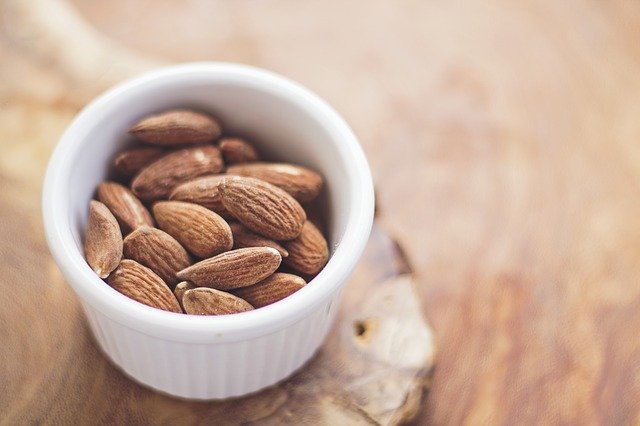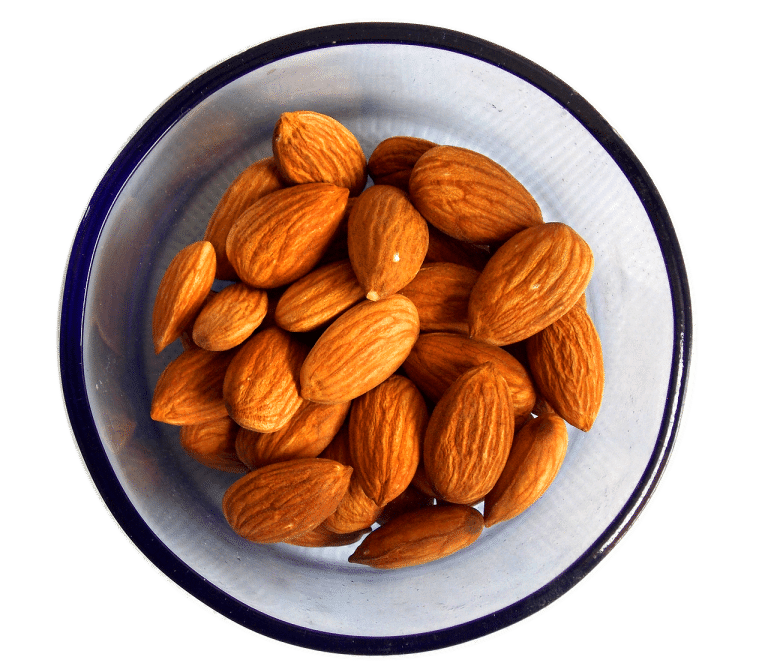Nuts are one of the main pillars of the dry fruits industry. They are delicious and are the primary source of fatty acids and other nutrients that are beneficial for your body. All around the world, there are different forms of nuts that are used. However, almonds are said to be the king of nuts, thanks to their amazing taste and an impeccable set of health benefits. Even though it is one of the preferred dry fruits, many people still fight the confusion of ‘how many almonds should you eat a day’.
In this article, you will get to know almost every known fact about the almonds and your usual daily almond intake. So, let’s get started!
Table of Contents
Where is almond grown?
Before answering your question for how many almonds should you eat a day, let us first discuss a few basic things about this nut species. The best way to start the discussion is by talking about the origin of the nut tree.
Almonds grow on a nut tree that is native to Iran’s lands and other surrounding gulf countries. However, with the advancements in agricultural and farming techniques, this nut tree is grown in various parts across the world.
Usually, the almond seeds are grown in the form of a drupe, inside a peach-like fruit. The seeds are taken out after the harvest season. The nut remains inside a shell, which is sometimes removed to reveal the soft seed coat and the white nutty embryo.

What are the major constituents of almond?
To understand ‘how many almonds should you eat a day’, you must know its constituents. Knowing the major composition will help you to understand the measurement of the food that you can eat per day without any hassles.
- Almonds are rich in proteins and fibers. It is a plant protein that is essential for the proper growth of your body. Also, the rich fiber content of the nut will help in keeping your gut healthy.
- It contains multiple vitamins, including Vitamin E, a fat-soluble vitamin, and riboflavin ad niacin, which are part of the Vitamin B family.
- In the mineral section, you will find magnesium, zinc, and potassium to be the major food constituent.
- Almost seventy percent of the almond’s exclusive fat content is mono-saturated fats, which are healthy for your heart.
- The almond skin has twenty different kinds of flavonoids, which are a group of powerful antioxidants.
- Suppose you are considering the oil content of the kennel. In that case, you will have oleic acid, an omega-9 fatty acid molecule, linoleic acid with an omega-6 fatty acid molecule, and palmitic acid.
What are the health benefits of almond nuts?
Before you know how many almonds you can eat in a day for staying fit and healthy, let us discuss the benefits of nuts first. This will help you clear all the negative thoughts about the nut family, thereby helping you understand the food clearly. So, here is a list of the significant benefits of almond nut that one can enjoy.
- Rich in different forms of nutrients: One of the major benefits of including almonds in your daily diet schedule is that the food is a reserve of multiple nutrients- both macro and micro. This abundant nutrient supply will help strengthen your body’s immune response, thereby promoting your physical health without any artificial drug intervention.
- An excellent source of omega fatty acids: Omega-9 and Omega-6 fatty acids are beneficial for improving your skin’s health. The presence of these fatty acids in your blood will make your skin glow, reduce the chances of any dermal infection, and prevent epidermis’s wrinkling.
- Reduces the LDL and triglycerides in the blood: Both the LDL cholesterol and the triglycerides are incredibly harmful to your heart and the entire cardiac system. This is where the almonds will help you out. After knowing how many almonds per day you can eat, you will be able to improve your heart’s health and reduce these unwanted cholesterols.
- Excellent for improving the functioning of the brain: Surveys have shown that the almonds’ high nutritious content helps increase the memory and concentration power of your brain. Many doctors suggest giving almonds regularly to children, provided you know ‘how many almonds should you eat a day’.
- Curbs hunger and prevent excess intake of food: People often say that eating too many nuts in a day will make you fat. Well, even though this conception is true to some extent, we cannot apply the theory to almonds straightway. This is because, rather than making you crave more foods, almonds curb down your hunger and increase your body’s metabolism rate to provide energy at the expense of the stored carbs and fats.
- Rich in antioxidants: The rich source of antioxidants that come with almonds can’t be taken lightly. The group of twenty different flavonoids makes the nut one of the healthiest supplements to have each day. The antioxidants will prevent the occurrence of any form of mutagenic reaction in your body.
- A prime source of the fat-soluble Vitamin E: Vitamin E plays a very crucial role in our health by reducing the chances of coronary heart diseases, early aging of the skin, inflammations, etc. This is why eating almonds is the fact that you can never ignore it.
- Helps regulate blood pressure: Lastly, almonds help regulate blood pressure, thanks to the reserve of magnesium and potassium in the white, fleshy part of the nut.
Also Read: Amul Almondo – Chocolate Coated Almonds: #FirstImpressions

How many almonds should you eat a day?
Now, since you are aware of the nut’s benefits, it is time to discuss ‘how many almonds should you eat a day’. The nut’s daily intake will depend on your health and the purpose of eating the food.
- If you take around forty-five grams of almonds daily, you will be able to prevent multiple types of heart diseases, including dyslipidemia.
- If you simply are looking for adding nutrients to your diet, take eight to ten pieces of soaked almonds every morning.
- To know how many almonds a day for losing weight, you first need to know your BMI ratio and how many calories you will have to burn to reduce your weight. Generally, for losing weight, you need to eat soaked four to six almonds empty stomach. You can also have almond milk instead of regular dairy milk to lose your weight fast.
- For having a glowing and healthy skin, you can eat eight to ten soaked almonds every alternate day. Also, almond oil will be beneficial in reducing the stress lines from your skin.
Well, this was just a glimpse of how many almonds should you eat a day. The intake quantity depends on your body. You cannot take the nut excess because then the food will have adverse effects on your health. So, always consult with a dietician to know the proper amount of the nut you can take for better health, and not for a deteriorating one.
What are the side effects of eating too much nuts?
Eating too many almonds regularly will harm your health. This is what we will be discussing now to be aware of your daily intake regime.
- Overeating of the nut can cause some serious digestive problem. Since it contains a high amount of fiber, your body needs some time to complete the digestion. Taking an overdose will result in the malfunctioning of your gut.
- Since almonds are rich in fats, taking too much of them will increase your weight rather than reduce the body fat content.
- Vitamin E overdose is also another reason why you should keep your almond intake in check. It can lead to fatigue, nausea, blurry eyesight, and even internal bleeding since Vitamin E is a natural blood thinner.
- Excess intake of the nut will lower the nutrient absorption power of your body, thereby making you deficient in essential nutrients.
- Sometimes, having an excess amount of the almond nut can lead to allergies. Some people have allergic reactions to palmitic or oleic acid. And since almonds are rich in both these components, you must be careful about allergic reactions.
Conclusion
Knowing ‘how many almonds should you eat a day’ will help you avoid the series of unnecessary complications discussed here. When you are eating almonds, make sure to soak the nuts in clean water for six to eight hours. This will enhance the seed coat’s nutrient absorption power, making it more beneficial for your body.


